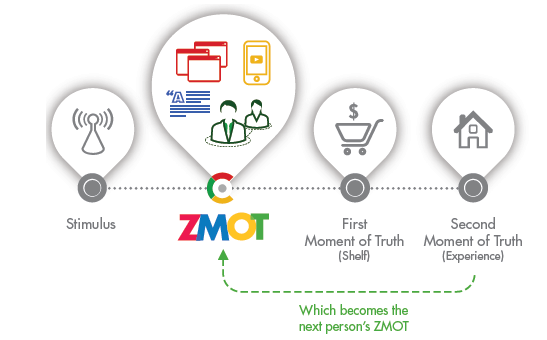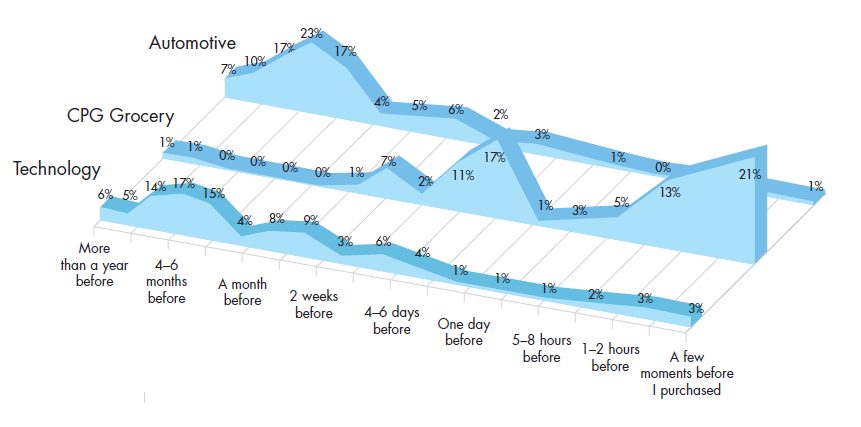Google recently came out with some research called Zero Moment of Truth that very clearly and convincingly lays out the business case for social media and how it impacts the consumer’s buying journey.
 Google states that the Zero Moment of Truth is the moment when a consumer picks up a laptop, mobile phone or other wired device to research a product or serve and then decide what to buy. The research shows that more and more, people are making their buying decisions well before they get to the store.
Google states that the Zero Moment of Truth is the moment when a consumer picks up a laptop, mobile phone or other wired device to research a product or serve and then decide what to buy. The research shows that more and more, people are making their buying decisions well before they get to the store.
Recently, I’ve been telling anyone who will listen (ad nauseum, perhaps) that there’s been a fundamental shift in how consumers gather data and how they’re using that data to make buying decisions for products from new cars to ball point pens.
They are increasingly turning to online social interactions to check out ratings and reviews (which is a form of social sharing) for opinions on products and services and searching what a brand’s Facebook Pages or Twitter account has for deals and insights as to what’s new. They’re also using sites like YouTube and Vimeo to research how-to videos or demos on how products are used. Here’s some interesting stats that highlight this behavior:
- 70% of Americans now say they look at product reviews before making a purchase
- 79% of consumers now say they use a smartphone to help with shopping
- 83% of moms say they do online research after seeing TV commercials for products that interest them
All these social interactions can be quickly and easily found using search engines like Google, Bing and Yahoo. For a long time the conventional wisdom was that people won’t go out of their way to research things like laundry detergent and butter but in fact they do. Google’s research clearly shows they do.
The graphic below shows when those Zero Moments of Truth are happening:
If you don’t believe what Google’s saying, the Harvard Business Review came out with some research from McKinsey & Company that supports Google’s thinking. (See my recent article Consumer Decision Journey in the Digital Age) They’ve actually documented this behavior in 2009 and Google backs up their assertion that brands need to be at that digital evaluation process or Zero Moment of Truth when the consumer looks for information. If a brand isn’t showing up when consumers do their search, they are losing sales.
Where social media really makes its impact is in the advocacy phase of the consumer’s buying journey after they’ve taken advantage of a service or brought a product home and used it. If they like it (or not) they will go on Facebook, Amazon.com, Twitter, blogs, Consumer Reports, or brand website and let you know what they think. And for the first time in history, this word-of-mouth communication is being digitally archived making one person’s advocacy someone else’s Zero Moment of Truth.
I highly recommend you check out Google’s research (it’s free), watch all the videos and read it in its entirety. This Zero Moment of Truth will become, if it’s not already, the most important impetus for a customer to buy your company’s goods and/or services.


 I recently attended a very interesting Twin Cities Social Media Breakfast (
I recently attended a very interesting Twin Cities Social Media Breakfast (